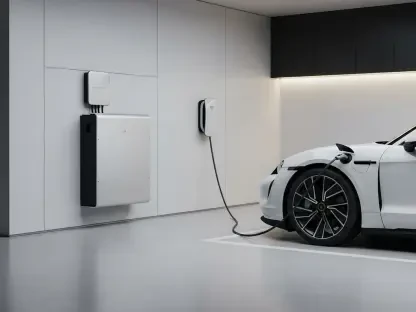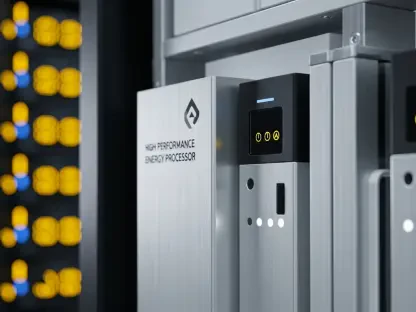In a rapidly evolving landscape of sustainable transportation, one company has emerged as a powerhouse in the commercial electric vehicle (EV) market, achieving staggering growth figures that have caught the attention of industry watchers. BYD, a leading Chinese manufacturer of electric vehicles, reported an astonishing 87% year-over-year increase in electric truck sales for September, signaling a robust demand for cleaner, more efficient commercial transport solutions. This surge is not just a fleeting statistic but a reflection of broader trends toward electrification in sectors that have a significant environmental footprint. As businesses and municipalities worldwide prioritize sustainability, BYD’s performance offers a glimpse into the potential for transformative change in how goods and services are delivered. This article delves into the specifics of BYD’s success, exploring the numbers behind the growth and the implications for the future of commercial EVs.
Breaking Down the Numbers
Electric Truck Sales: A Remarkable Leap
The most striking aspect of BYD’s recent performance lies in its non-bus commercial EV sales, which encompass a variety of vehicles such as delivery vans and heavy-duty trucks. In September alone, sales in this category soared by 86.9% compared to the previous year, climbing from 1,517 units to an impressive 2,835 units. Even more staggering is the year-to-date growth over the first nine months, with sales skyrocketing by 360.7%, from 8,156 units to 37,578 units. This explosive increase highlights BYD’s ability to capture a growing market segment that is increasingly turning to electric solutions for logistics and transport needs. The demand for such vehicles is driven by stricter emission regulations and corporate commitments to sustainability, positioning BYD as a key supplier in this transformative space. Moreover, this growth underscores the scalability of electric technology in commercial applications, where reliability and cost-effectiveness are paramount for widespread adoption.
Electric Bus Sales: Steady but Not Spectacular
While the electric truck segment has seen dramatic gains, BYD’s electric bus sales have followed a more measured trajectory, reflecting a stable but less dynamic market. In September, bus sales grew by 24.3% year-over-year, rising from 306 units to 375 units, a respectable uptick that indicates consistent interest from public transit authorities. Over the first nine months, the growth rate stood at 11.7%, with sales increasing from 3,318 units to 3,706 units. Although these figures pale in comparison to the truck segment’s performance, they still represent a solid contribution to BYD’s overall EV portfolio. The slower growth in bus sales may be attributed to longer procurement cycles and budget constraints faced by municipal buyers, which often delay fleet electrification. Nevertheless, this segment remains an important pillar of BYD’s strategy, as buses play a critical role in urban sustainability efforts and reducing air pollution in densely populated areas.
Implications for Sustainable Transportation
Environmental Impact of Commercial EVs
One of the most compelling reasons behind the push for commercial EVs is their outsized potential to reduce greenhouse gas emissions compared to passenger vehicles. Large commercial vehicles, often in constant operation, contribute significantly to carbon footprints, making their transition to electric power a priority for environmental advocates. BYD’s success in this arena, particularly with trucks and vans, suggests that the electrification of fleets could yield substantial benefits in terms of air quality and climate goals. While specific data on emissions reductions by vehicle type isn’t widely available, the consensus is clear: replacing diesel-powered heavy-duty vehicles with electric alternatives offers a greater per-unit impact than similar efforts in the passenger car market. BYD’s growing sales figures reflect a market readiness to embrace this shift, as companies seek to align with global sustainability mandates and reduce operational costs through electric efficiency.
Balancing Portfolio Challenges
Despite the remarkable achievements in commercial EV sales, BYD’s broader business context reveals a more nuanced picture, with challenges in other segments tempering overall optimism. Notably, the company faced a downturn in passenger car sales, particularly in the plug-in hybrid category, during September and the third quarter. This contrast highlights the importance of a diversified portfolio, where strengths in one area can offset weaknesses in another. The robust growth in commercial EVs has provided a critical buffer for BYD, demonstrating resilience amid fluctuating demand in the consumer market. This balance suggests that BYD’s strategic focus on commercial vehicles not only capitalizes on current trends but also positions the company to weather variability in other sectors. As electrification continues to reshape transportation, BYD’s ability to adapt across different vehicle categories will likely remain a key driver of its long-term success in the global EV landscape.









